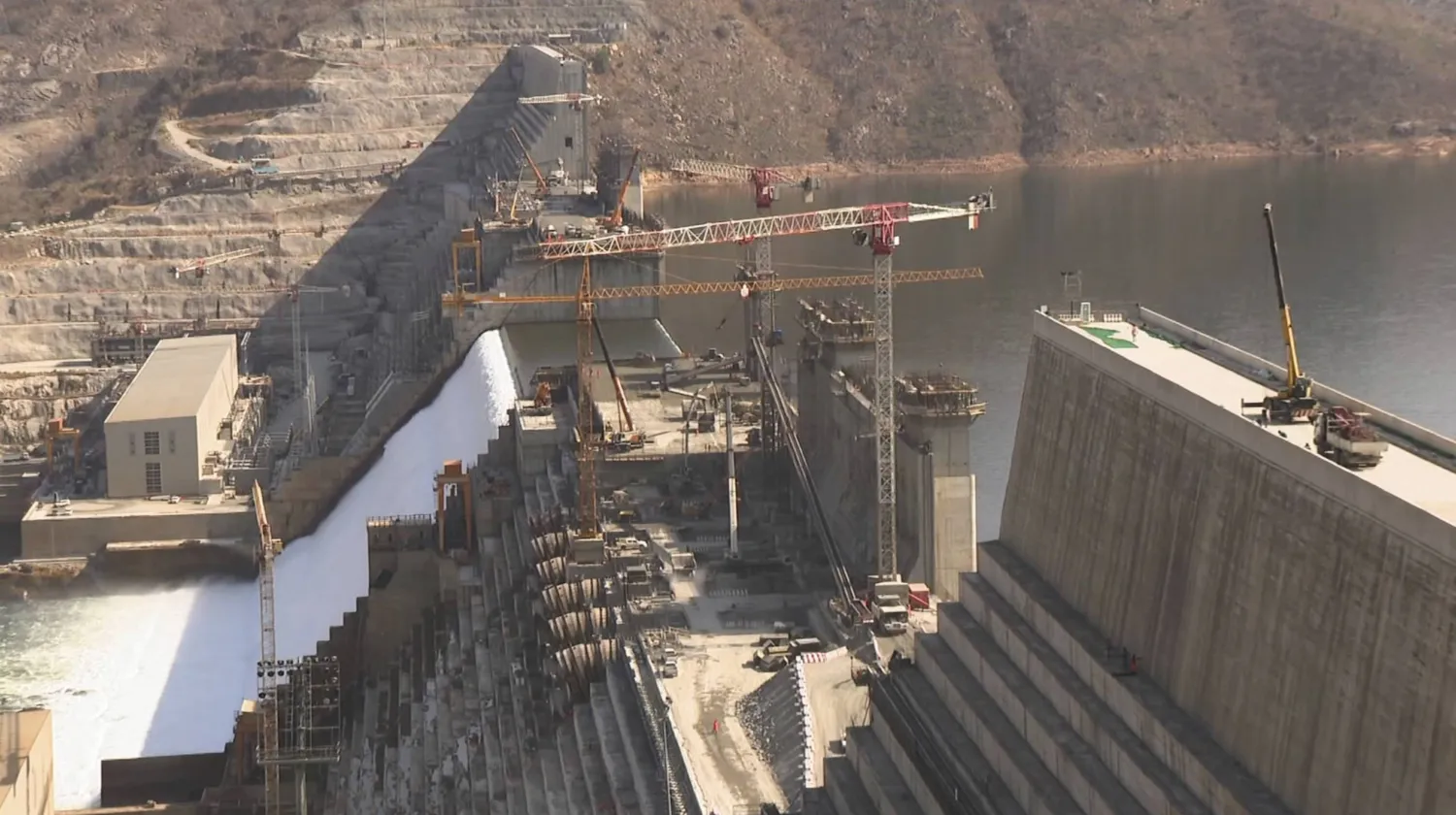Egypt said Friday that Ethiopia has consistently lacked the political will to reach a binding agreement on its now-complete dam, an issue that involves Nile River water rights and the interests of Egypt and Sudan.
Ethiopia’s prime minister said Thursday that the country’s power-generating dam, known as the Grand Ethiopian Renaissance Dam (GERD), on the Nile is now complete and that the government is “preparing for its official inauguration” in September.
Egypt has long opposed the construction of the dam, because it would reduce the country's share of Nile River waters, which it almost entirely relies on for agriculture and to serve its more than 100 million people.
The more than the $4 billion dam on the Blue Nile near the Sudan border began producing power in 2022. It’s expected to eventually produce more than 6,000 megawatts of electricity — double Ethiopia’s current output.
Ethiopia and Egypt have spent years trying to reach an agreement over the dam, which Ethiopia began building in 2011.
Both countries reached no deal despite negotiations over 13 years, and it remains unclear how much water Ethiopia will release downstream in case of a drought.
Egyptian officials, in a statement, called the completion of the dam “unlawful” and said that it violates international law, reflecting “an Ethiopian approach driven by an ideology that seeks to impose water hegemony” instead of equal partnership.
“Egypt firmly rejects Ethiopia’s continued policy of imposing a fait accompli through unilateral actions concerning the Nile River, which is an international shared watercourse,” Egypt’s Ministry of Water Resources and Irrigation said in a statement Friday.
Ethiopian Prime Minister Abiy Ahmed, in his address to lawmakers Thursday, said that his country “remains committed to ensuring that our growth does not come at the expense of our Egyptian and Sudanese brothers and sisters.”
“We believe in shared progress, shared energy, and shared water,” he said. “Prosperity for one should mean prosperity for all.”
However, the Egyptian water ministry said Friday that Ethiopian statements calling for continued negotiations “are merely superficial attempts to improve its image on the international stage.”
“Ethiopia’s positions, marked by evasion and retreat while pursuing unilateralism, are in clear contradiction with its declared willingness to negotiate,” the statement read.
However, Egypt is addressing its water needs by expanding agricultural wastewater treatment and improving irrigation systems, according to the ministry, while also bolstering cooperation with Nile Basin countries through backing development and water-related projects.









